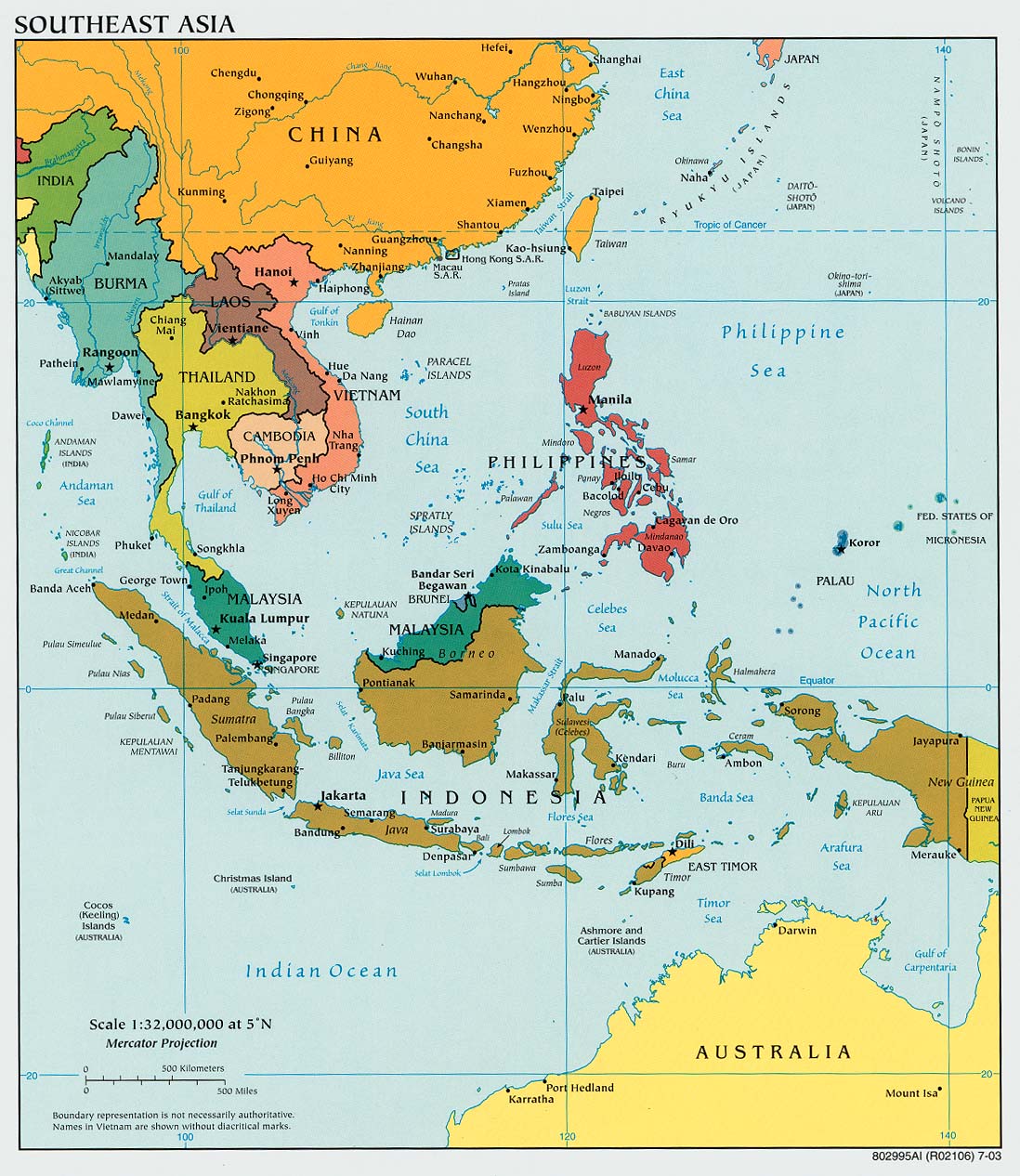As Brexit continues to cast concern for EU trade, Siddharth Shankar sheds light on the ASEAN region and suggests that companies looking to enjoy a fruitful foreign trade relationship should consider the countries within this increasingly important market, which is welcoming international trade.
The ASEAN region (the Association of South-East Asian Nations) was founded in 1967 and is comprised of ten countries. These include Singapore, Malaysia, Thailand, Vietnam and Indonesia. With a combined population of 640million people and an economy worth more than $2.8trillion, it is a huge potential market for foreign trade – for example, UK exports. The ASEAN’s aggregate economy is forecast to grow this year and next by five per cent and the countries within this region are increasingly open to international trade.
Last year’s figures from the UK’s Department of International Trade revealed that a whopping 48% of British exports were to other EU countries. However, with Brexit throwing doubt over the future trading relationship between the UK and the EU, it’s becoming increasingly important to shift our focus from trading within the EU to outside it. Asia is already proving to be an important part of this. This year’s figures, released in June, show that UK exports to India and China increased by 31.8% and 15.3% respectively in the year to March 2018.
There are already close ties linking Britain and many of the countries within the ASEAN. Of its ten members, four are former British colonies and three of those remain members of the Commonwealth – providing a strong foundation to build upon. The UK government has already made it a top priority to begin strengthening trade links with ASEAN countries and putting greater incentives in place for UK companies to begin trading there.
In April, for example, UK Trade Minister Dr Liam Fox touched down in Bangkok on a mission to bolster links with Thailand, which is South East Asia’s second largest economy. It’s the first time in 15 years such a visit has been made. Simultaneously, the UKEF (Export Finance) announced it would double finance available for British businesses exporting to Thailand to £4.5 billion. Later this year, ministers from the Department of International Trade will also visit fellow ASEAN country, Vietnam.
ASEAN region – opportunities
So what opportunities are there in the ASEAN region and how can UK businesses build new trading relationships with its members?
Firstly, it’s important to note that the ASEAN region is changing fast. Where previously it was seen as a low-cost manufacturing destination, it has become a pillar of strength of Asian GDP. This area is already a major trade route for global business. As a result, regional co-operation and integration processes are already evident there. This makes trading with ASEAN countries significantly easier than previously and also more straightforward than trading with some other Asian countries.
This isn’t to say that UK businesses exporting to the ASEAN won’t face challenges along the way. As with much of Asia, unclear taxation and government policies, intellectual property issues, corruption, payment delays and poor infrastructure are all still potential hurdles that businesses must watch out for in some ASEAN countries and factor into their plans before they begin exporting there.
It will be crucial for UK businesses looking to foster new trading relationships with ASEAN countries to gain a deeper understanding of multiple aspects of the region – especially its countries’ political and geological positions and cultures – before embarking on the process of building ties with these countries.
The region is uniquely placed between India and China and, given the disputes regarding borders and trade, it can be confusing getting to grips with this heavily intertwined market, with its complex mix of intense collaboration and conflict. It’s a good idea to consider the bigger picture before delving deeper into the region.
In the current climate, it is particularly wise to offer friendship to ASEAN countries, especially while everyone else is occupied with the tit-for-tat trade war currently escalating between two of the world’s greatest superpowers, China and the US.
The first ASEAN member to focus your attention on is Singapore. Singapore is not technically in charge of this group of countries. That being said, it is the leading country within the ASEAN and therefore, inevitably, is key to building new business relationships within this region. Initiating a good trading relationship with Singapore would certainly set an example to the rest of the ASEAN countries that forming new trading partnerships with UK businesses could prove to be beneficial to their country, too.
The next step is to follow up with the other big players in the region, namely Malaysia, the Philippines and Thailand. There is a big market for UK products in these countries. For instance, in Thailand, among the rising middle class there, there is an increasing interest in British hobbies, such as golf, and consumables such as whiskey. Each country within the ASEAN region would appreciate and value a protected and steady stream of import goods from the UK and a more stable market for their businesses to thrive overseas as well.
Strategy for trading with ASEAN region
Finally, as long as the major players of the ASEAN region are on board, it will not be a problem to get the rest to follow suit.
The UK government does need to apply an overall strategy for fostering new trading relationships with the ASEAN region that emphasises the economic gains shared with each party and gives less standing to border issues and other political and religious affairs. This would actually offer a helping hand to ASEAN countries in this particular political environment. And such a gesture would not only be appreciated, but also give UK businesses a head start for further co-operation with this region.
Please share your thoughts about this article – the GMA is a community of data-driven marketers and we value your opinion.
Click back to our HOME PAGE to view all the latest insightful posts from our expert contributors.






Leave your thoughts